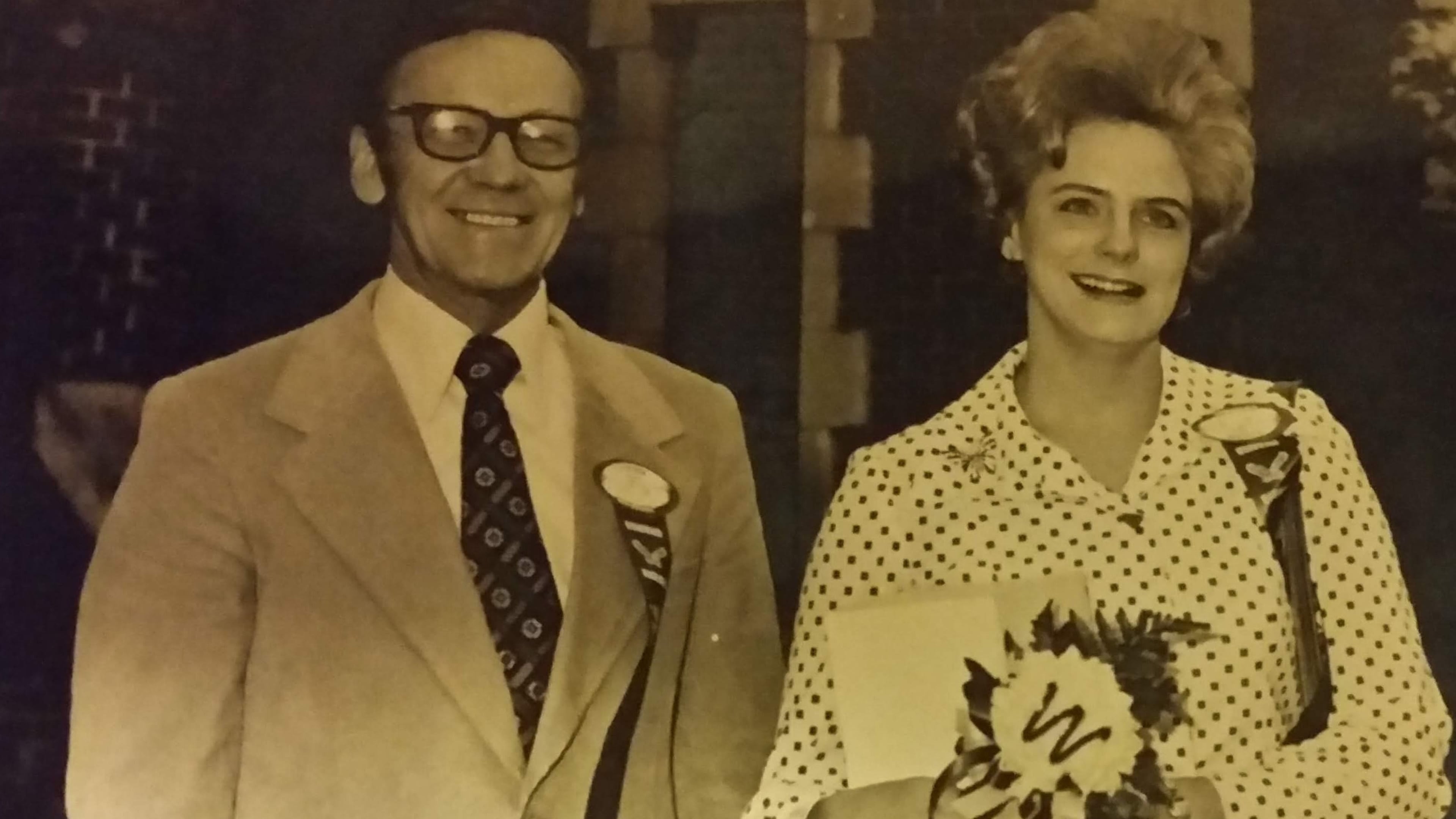A teacher looks back on 48 years with love and laughter

A father miffed over his son’s grade on an essay on “Paradise Lost” once asked literature teacher Carolyn Haldeman, “What makes you think your opinion of what my son said about the book is better than his?”
Her answer: Experience.
Haldeman showcases that experience in a charming new book that chronicles her 48 years of teaching, most at Woodward Academy in College Park. The proceeds from her book, "The Misadventures of a Septuagenarian Teacher," benefit the Delta Kappa Gamma Scholarship fund for teachers seeking advanced degrees.
Not all teachers today would describe teaching as a joyful experience, but the gregarious Haldeman never lost her love of the classroom and still, in retirement, volunteers with children and continues to serve as an AP Literature exam reader. “I worked in a very supportive community where teachers were revered and we didn’t get into trouble too many times. I was blessed every day to have a good time,” she said.
“If you love kids, they are so fascinating,” said Haldeman. “I learned as much from them as I could ever give them, especially working with children where English was not their first language.”
Not that Haldeman didn’t have tough moments. Decades later, she still rues a “D” she gave a student who was trying his best.

“Every day, there is going to be one screw-up. None of us is perfect. We all need editing. You have to be flexible. Teachers need to be able to say, ‘Well, that didn’t work so well,’ and then try something different tomorrow. Teachers have to turn in lesson plans, but there are times when they just may want to say, ‘Today, I plan to do the best I can.’”
In her own career, Haldeman cites the importance of mentors, including legendary Woodward teacher Bob Ballentine, whose mesmerizing readings from “Moby Dick” made Captain Ahab’s obsession with a white whale more enthralling than when she read it herself in high school.
Eventually, Haldeman taught the Herman Melville classic to blasé teens, recalling a Woodward graduate on college break who stopped by her classroom and left the note: “Mrs. Haldeman, I’ve read ‘Moby Dick’ for real this time.”

Her most beloved mentor was the regal and occasionally imperious English department chair Bobby Alford, who had been at Woodward when it was the Georgia Military Academy. When an angry boy questioned Alford on why he earned an F on a paper, the teacher told him, “Because that’s the lowest grade I can give.” A father thundered at Alford that he was not paying for his son to receive C’s at Woodward. Her retort: “And you are not paying for him to receive A’s and B’s, either.”
Haldeman always looked for creative ways to engage her young charges with words, hiding Easter eggs containing literary quotes on the Woodward football field. Her literature students gathered the eggs and returned to the classroom to figure out the sources of the quotes. A month later, an errant egg was found during a sports practice. Alas, the egg harbored a quote from James Thurber’s “The Catbird Seat” — “I’m going to build a bomb and blow up the old goat.”
Fearing “old goat” might refer to Woodward’s no-nonsense head coach, the school president alerted security and College Park police before the egg was traced back to Haldeman’s literary egg hunt. When Haldeman apologized repeatedly, Woodward’s head of security reassured her, “Missy, you go right on doing what you do to make students excited about learning. Don’t you worry none.”
Although Haldeman’s book is light and lively, it ultimately tells the story of a lifetime love affair with language and learning.
“I have a friend who teaches physics. He is fascinated with the universe and man’s attempts to understand it. He may not know where his keys are, but he can tell you the alignment of the stars. I have a friend who loves math, and I have a picture of her in a circle of students from our sister school in Zambia drawing equations in the dirt,” said Haldeman. “In my opinion, life doesn’t get any better than taking something we love and convincing students that they can love it too — the power of words, in my case.
“Students may disappoint you, but what you love to learn and teach won’t change,” she said. “For instance, I often had students memorize portions of prose and poetry. When asked, ‘Why?’ I would say that when we learn something by heart, it becomes ours. Ahab is not the only person to ask, ‘Is it I, God, or who, that lifts this arm?’”



